If you say, I'm for equal pay, that's a reform. But if you say. I'm a feminist, that's a transformation of society
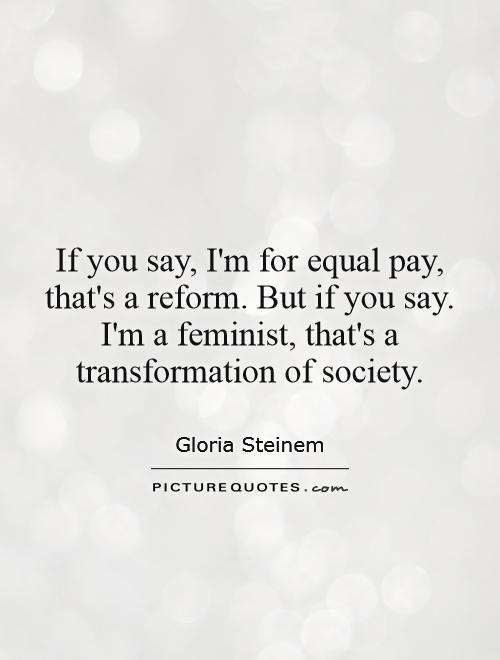
If you say, I'm for equal pay, that's a reform. But if you say. I'm a feminist, that's a transformation of society
Gloria Steinem, a prominent feminist activist and writer, has long been a champion for gender equality and women's rights. Her quote, "If you say, I'm for equal pay, that's a reform. But if you say. I'm a feminist, that's a transformation of society," encapsulates the essence of her beliefs and the broader feminist movement.Steinem's distinction between advocating for equal pay and identifying as a feminist highlights the difference between addressing individual issues and working towards systemic change. Equal pay is a crucial reform that seeks to rectify the gender wage gap and ensure that women are paid fairly for their work. However, simply advocating for equal pay does not address the underlying power structures and societal norms that perpetuate gender inequality.
On the other hand, identifying as a feminist signifies a commitment to challenging and dismantling these systems of oppression. Feminism is not just about achieving equality in the workplace or in other specific areas of life; it is about fundamentally transforming society to create a more just and equitable world for all individuals, regardless of gender.
Steinem's quote also speaks to the broader implications of embracing feminism as a political and social identity. By declaring oneself a feminist, one aligns with a movement that seeks to challenge patriarchal norms, dismantle gender stereotypes, and advocate for the rights and autonomy of all individuals, regardless of their gender identity.

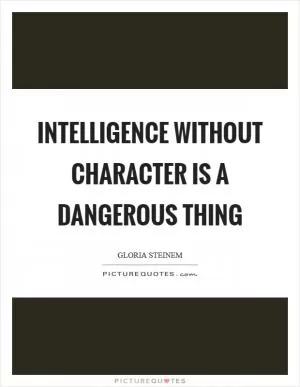
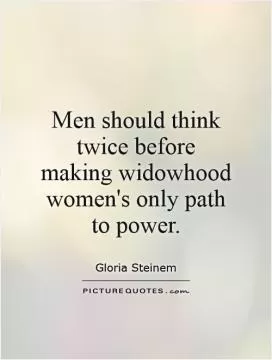
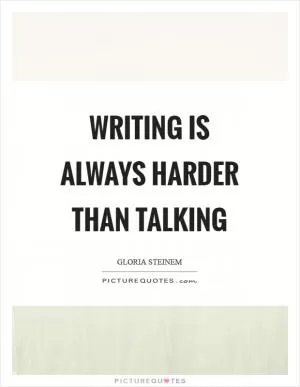

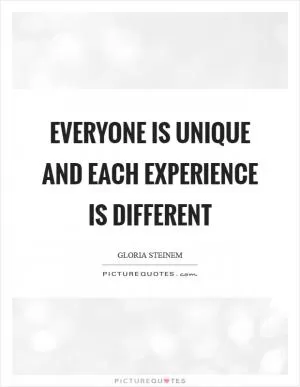


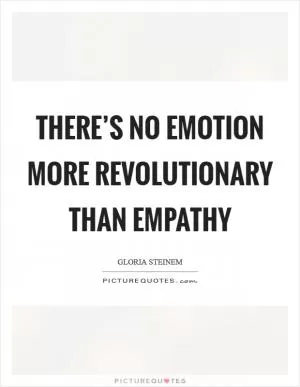


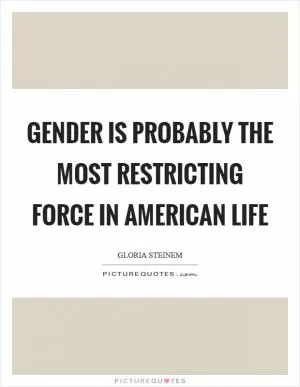
 Friendship Quotes
Friendship Quotes Love Quotes
Love Quotes Life Quotes
Life Quotes Funny Quotes
Funny Quotes Motivational Quotes
Motivational Quotes Inspirational Quotes
Inspirational Quotes